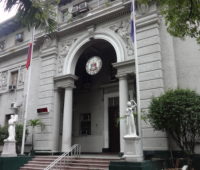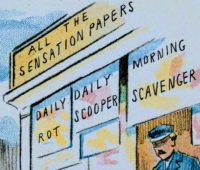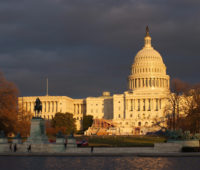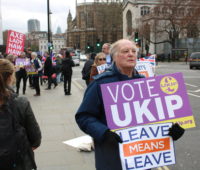As part of the annual “Democratic Erosion” student series, Edcel John Ibarra examines the deterioration of the judicial independence of the Philippine Supreme Court in recent history, especially under Rodrigo Duterte’s presidency. Pointing to the relationship between judicial independence and democratic consolidation, he argues that the Philippine judiciary has historically been a crucial bulwark against democratic erosion. However, presidential and congressional efforts to reshape the Supreme Court in recent years have undermined its independence, and so the country may have to rely on other safeguards.
Can representative democracies be strengthened to govern more effectively? The SSRC’s Anxieties of Democracy program is motivated by a concern about whether the core institutions of established democracies can capably address large problems in the public interest. The “Democracy Papers” highlight and summarize new research presented at conferences and workshops related to the Anxieties of Democracy program. Throughout the SSRC’s history, it has organized and sponsored committees and conferences on democracy, both in the United States and abroad. Most recently, before the Anxieties of Democracy program, the SSRC convened the National Research Commission on Elections and Voting in 2004, culminating in the publication of the report, Challenges Facing the American Electoral System: Research Priorities for the Social Sciences.
If you enjoy the “Democracy Papers,” you may also like our collection of reflection essays on the anxieties of democracy, The Inaugural Democracy Papers. These pieces were collected for the launch of the Anxieties of Democracy program in 2014–15.
Themes


Grappling with the Legacy of Evo Morales and the Future of Bolivian Democracy
by Justin KopekAs part of the annual “Democratic Erosion” undergraduate series, Justin Kopek traces the complex impact of Evo Morales’ presidency for Bolivian democracy. Morales, Kopek argues, deepened Bolivian democracy through socioeconomic reforms for previously marginalized groups. At the same time, Morales disrupted democratic processes and check and balances by interfering with the judiciary and the media. His dramatic removal as head of state now raises questions about whether Bolivia will be able to maintain progress toward broader social inclusion and whether the constraints on liberal democratic institutions will be reversed or continue.

The Subjects of History: Media, Technology, and Politics in Historical Context
by Michael Miller and Cole EdickIn light of the evolving Covid-19 pandemic, the Media & Democracy program has been forced to postpone two upcoming workshops until further notice. “News Coverage of US Elections,” which will address how changes in media, technology, and politics shape the way that elections are covered in the United States, and “Extreme Right Radicalization Online,” which will support research on the processes driving right-wing extremism and the distinct mechanisms by which such processes occur online, will be held later this year. As the program reorients toward an uncertain future, it offers this report on media and political change in historical context, the subject of a research workshop and public event held last spring.

The Root of Legislative Disagreement: Committee Behavior and Policy Output
by Jonathan LewallenWhile congressional conflict is most visible when the institution is debating a bill or nomination, the roots of conflict arise earlier in the legislative process. When the House and Senate debate legislation, two of the institution’s most important decisions—whether to make policy and how—already have been made at the committee level. In this essay, Jonathan Lewallen explores agreement and dissent in congressional committees. Drawing on committee reports, he finds that, although overall rates of disagreement on committee reports have not changed much since the mid-1990s, there is variation in the likelihood of report disagreements by committee. This project is poised to better understand where and why agreement in Congress has become harder.

Constructing Bipartisan Coalitions to Pass Legislation
by Lynda W. PowellOver the last 30 years, party polarization has increased, making bipartisan compromise less attainable. In this essay, Lynda Powell identifies the electoral and institutional factors influential in determining the extent to which individual legislators spend time forming cross-party rather than within-party coalitions to pass legislation. Focusing her analysis on individual legislator behavior, she introduces a new measure of legislative activity—coalition building bipartisanship—defined as the difference in time legislators devote to cross-party versus within-party coalition building to pass legislation. Overall, Powell finds that in state capitols as well as Congress, as time goes on, legislators spend more time building within-party coalitions, rather than bipartisan coalitions.

Action in Polarized Times: Understanding the Legislative Strategy of the Congressional Black Caucus
by Mamie E. LockeOver the course of nearly 50 years, the Congressional Black Caucus (CBC) has developed many strategies and negotiating tools to become an effective organization in Congress. Here, Mamie Locke explores how the CBC has grown from its original 13 members from relatively homogeneous districts to a caucus reflecting greater geographic and demographic diversity. She argues these changes in membership allow the CBC to more readily engage in deliberative negotiation and strategic partnerships to meet its mission of empowering marginalized communities. The CBC has leveraged its collective power to animate a policy agenda determined to move minority communities forward. Despite facing an increasingly polarized environment for the past 20 years, CBC members have formed alliances and worked in a bipartisan way to achieve successful legislative outcomes.

Contemporary Challenges in the Study of Populism: A Workshop on Ideational Approaches
by Cole EdickIn this report, Cole Edick—program assistant for the Anxieties of Democracy program—outlines the ideation and theoretical principles that served as the basis of conversation at a research workshop, held at IE University in Segovia, Spain, entitled “The Ideational Approach: Consequences and Mitigation.” Edick highlights five key challenges discussed at the workshop for the contemporary study of populism, among them: how to define populism, what unites populism across different political systems, and can social media inform the study of populism. Future endeavors assessing the modern ascendance of populism will benefit from this report, which contextualizes extant as well as ongoing research seeking to understand populism in varying contexts.

The National Reputations of Moderate Senators
by Logan DanceyA consequence of increasing polarization is the decline of moderate legislators—those who occupy an ideological middle ground between the two parties. This decline has allowed those moderates to play pivotal roles, especially in the Senate, in deciding whether a bill passes or fails or a nominee is confirmed or not. Yet little is known about whether these moderate senators play an influential role in shaping public opinion around pieces of legislation. Using a survey experiment, Logan Dancey investigates whether public support for specific bills changes depending on who sponsors (and cosponsors) the legislation. His findings suggest that although names like Susan Collins and Joe Manchin are well-known among American voters, when moderates attach their name to pieces of legislation, it does not uniquely influence public support for or opposition to the bill.

Pulling Strings: Congressional Leaders, Party Discord, and the Lessons of the Midcentury
by Ruth Bloch RubinIt is commonly believed that congressional leaders will always obey the “first commandment” of party leadership: Thou shalt not aid bills that will split thy party. Nevertheless, in 2017 House Speaker Paul Ryan and Senate Majority Leader Mitch McConnell allowed voting on a bid to repeal and replace the Affordable Care Act (ACA), putting on display their party’s ideological divisions. In this Democracy Papers essay, Ruth Bloch Rubin draws on the personal papers of midcentury House Speaker Sam Rayburn (D-TX) to understand when and why congressional leaders choose to act as agents of discord. She investigates how Rayburn used intraparty tensions to push for his agenda. Bloch Rubin argues that Rayburn’s tactics provide a new angle for understanding contemporary congressional action like the ACA bill.

Do Primary Voters Want Partisan Polarization?
by Danielle M. ThomsenDanielle Thomsen, a Negotiating Agreement in Congress grantee of the SSRC’s Anxieties of Democracy program, examines the electoral preferences of primary voters. Her project investigates whether primary voters can be persuaded to support politically centrist candidates. Using a survey-based experiment, Thomsen finds: (i) primary voters tend to prefer politically extreme over centrist candidates; (ii) despite Americans' frustration with gridlock and hyperpartisanship in Washington, primary voters are unlikely to vote for candidates who champion bipartisanship. Her findings shed light on the continued polarization in US politics.








